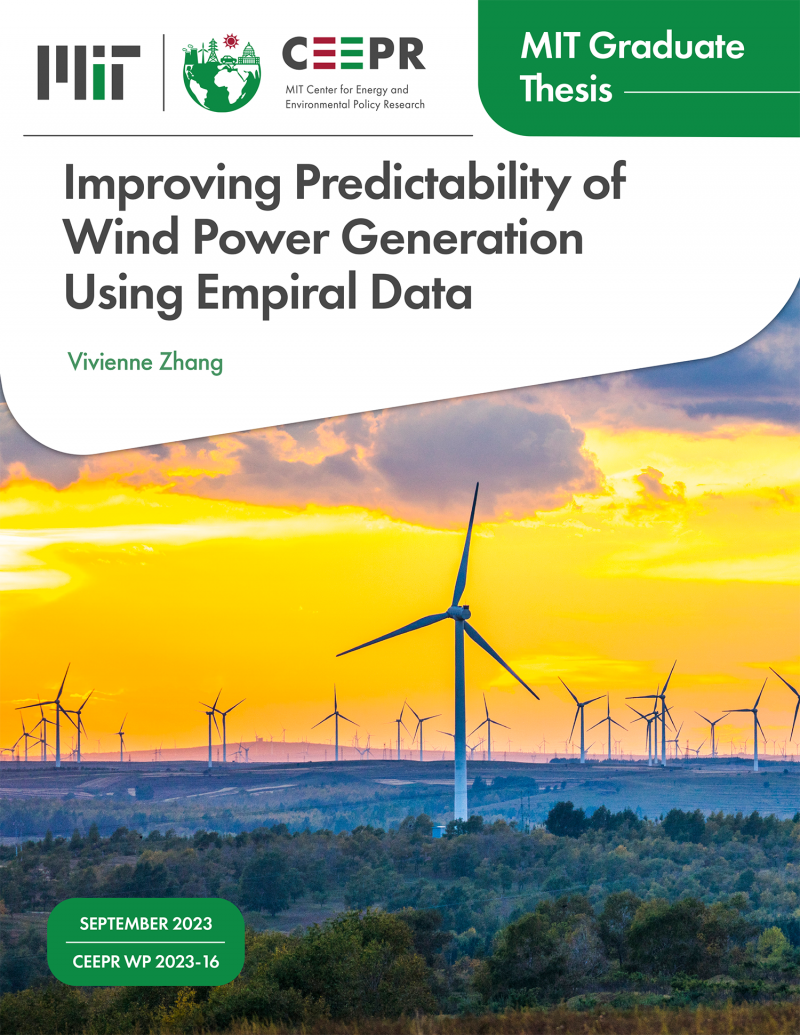Improving Predictability of Wind Power Generation Using Empirical Data
Vivienne Zhang
September 2023
Wind energy plays an important role in decarbonizing the economy and increasingly accounts for a growing share of electricity supply in the United States. However, availability of wind resource is highly dependent on variable factors such as weather and local geographies, making wind power generation forecast a particularly difficult task. This adds to the challenge of grid management, which requires that the supply of electricity equates the demand at all times.
Complicating the effort to improve wind power predictability is a lack of empirical data, since wind power generation data are proprietary and often considered business secrets. To address this lack of empirical study, this thesis uses actual generation data between 2016 to 2021 from seven anonymized wind farms in Midwestern United States that range from 50MW to 235MW in size. The experiments demonstrate how machine learning methods can be used to forecast wind power generation at different time intervals, and how the accuracy of forecasting can be significantly improved when using a combination of newly extracted weather forecast data and weather measurement data. The economic benefits of more accurate forecasting are then studied using a using a simulation with market data from the Midcontinent Independent System Operator and the Southwest Power Pool. The thesis then explores whether predictability of wind power generation can be improved by placing weather stations closer to the wind forecast sites. Implications of these findings can inform investment decisions regarding weather monitoring stations and forecasting models, which can help electricity market participants adapt to a grid with an increasing share of renewable resources.



